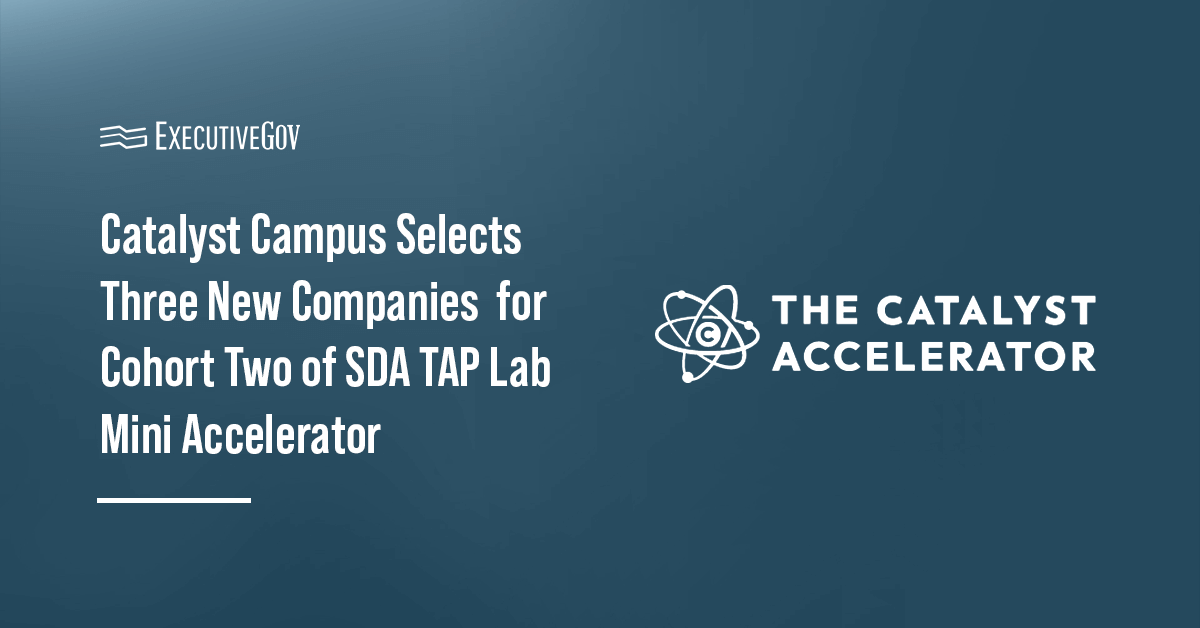Catalyst Campus has welcomed three new small businesses to its two-month mini accelerator program.
The non-profit said Monday that the new members of Cohort Two of its Space Domain Awareness TAP Lab Mini Accelerator were selected based on proposed solutions’ alignment with SDA mission areas and potential impact on national defense.

Leaders from across the space defense industry will come together at the Potomac Officers Club’s 2025 Air and Space Summit on July 31. Register for the in-person event here.
The SDA TAP Lab Mini Accelerator is open to early-stage companies and serves as a pipeline into Project Apollo, the Space Force’s collaborative technology accelerator. As part of the mini accelerator, participants will get access to mentorship opportunities and exposure to key Department of Defense and SDA stakeholders.
New SDA TAP Lab Mini Accelerator Cohort
Catalyst Campus named BQP, Paterson Aerospace Systems Corp. and R4C Tech as members of its Cohort Two.
BQP is working on BQPhy, a quantum-accelerated digital twin platform that can integrate into existing engineering workflows and infrastructure. BQPhy can bridge the gap between high-performance computers and future quantum computers.
Meanwhile, Paterson Aerospace Systems Corp. is developing technologies that can track orbital debris smaller than 10 centimeters, which pose a significant threat to space systems. The company believes that providing data on small orbital debris could prevent a future where space becomes inaccessible.
Led by scientists and aerospace, defense, and artificial intelligence developers, R4C Tech specializes in creating cyber-physical intelligence software systems that can detect and characterize threats and support data-driven decision-making. The company is currently building tools that will integrate machine learning and weather-based predictors to identify rocket launch windows.
Cohort Two commenced on July 8 and will run through Aug. 22 in Colorado.





